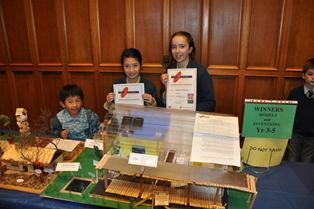As he enjoys the lifestyle convenience of the IT revolution, JOHN HARRIS reflects on how young people are embracing sustainable technologies of the future.
I’m currently in the process of digitsing my music collection.
While it sounds impressive, it’s actually the rather simple process of sticking a music CD into my notebook at work, which immediately rips and indexes a copy of the song into iTunes.
After I create a playlist with the album’s name, my music CD is stored not only on my notebook’s hard drive, but synced with in my iPhone and iPad as well.
With my groovy new Aksent hi-fi headphones – which have a great bass sound when I shove them firmly in my ears – I can listen to any song I want in seconds, without the hassle of shuffling through hundreds of CDs. With the right cables, I can also play these songs on my stereo.
This is just one of the reasons that I get excited by information technology.
By contrast, my daughter takes these sort of achievements for granted. Already her sights are set on the next wave of technology change that is starting to wash through our world.
I recognised how much the next generation’s eyes are fixed on technologies of the future as I sat through the presentation ceremony of the Oliphant Science Awards last Friday.
 I scored my invitation through the efforts of my daughter Eden and her friend Catherine, who collected an Australian Institute of Energy prize for a model they had made of an energy efficient house.
I scored my invitation through the efforts of my daughter Eden and her friend Catherine, who collected an Australian Institute of Energy prize for a model they had made of an energy efficient house.
As well as broad verandas, solar panels and underground water storage, this cleverly designed mini McMansion had the singular virtue of keeping both girls thoroughly occupied throughout the July school holidays.
They kicked off their project with planning meetings to select the best energy-saving technologies, and then spent many hours designing and building tiny pieces of furniture to equip the house.
From the length of the line of students who received Oliphant awards – a chunky subset of the record 2000 entries – ours was not the only house that was blissfully peaceful during the July school break.
What I relished about attending the Oliphant awards was seeing dozens of young award recipients, from Reception to Year 12, as excited about the technologies of the future as I am about IT.
Projects ranged from posters about “World Change through Electricity” and “Solar - It’s Free to Use” to experiments about “How to Get Salt Out of Salt Water” and a computer application called “Black Betty Interactive Robot”.
The interesting theme from the evening is that these enquiring young minds are focussed on how to better manage the world we have rather than just looking for new frontiers to conquer and exploit.
That’s a reassuring thought as I wander about listening to the music collection in my pocket.
John Harris is managing director of Impress Media Australia. Email jharris@impress.com.au.
Related News
- Trust is a must with offshore support Far from the mumbling horror of Mumbai Calling, JOHN HARRIS discovers that offshore support can deliver some unexpected benefits. I made a new friend last week, a delightfully erud...
- Seven essential steps to set up your new notebook After hours of setting up notebooks for his beloved wife and friends, JOHN HARRIS noticed that he had broken one of the basic rules of IT housekeeping.Regrets, I have a few.One is ...
- Putting search engine smarts into your website JOHN HARRIS offers a few tips to make your website more visible to Google. For many businesses, a smart website is a more important marketing tool than tradi...
- Help needs help After ignoring Help for years, JOHN HARRIS learns that online tutorials have improved a lot while he wasn't paying attention. I start with a mea culpa. I began writing this s...












